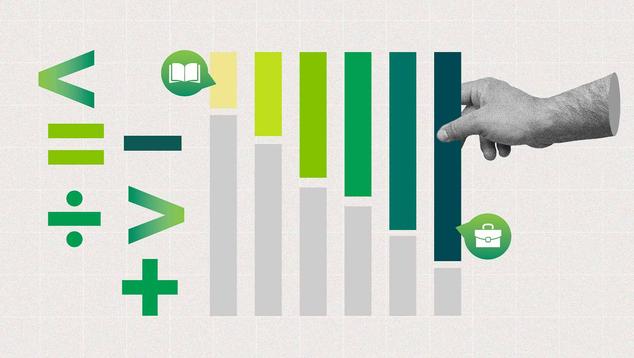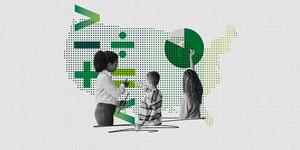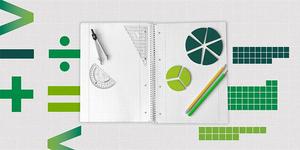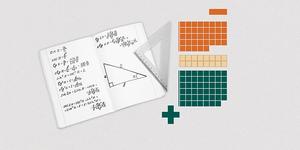Story Highlights
- Americans value math skills, but more in personal life than work
- Importance of math differs by age, with young people valuing it least
- Reading, tech skills top math skills in perceived importance for U.S. workforce
WASHINGTON, D.C. — Americans recognize that math is not only critical in the workplace but also a valuable tool in everyday life. Nearly two-thirds of U.S. adults (63%) rate math skills as “very important” for most Americans in their personal life, higher than the 55% who say the same about the importance of math in work life. Most of the rest consider math skills to be “somewhat important” in both situations, with few rating them as “not too important” and none saying they are “not at all important.”
These findings come from a web survey of 5,136 U.S. adults conducted Dec. 2-6, 2024, as part of the Gallup Math Matters Study. The survey was conducted in partnership with the Gates Foundation, via the Gallup Panel.
Older Americans More Likely to Value Math
Younger Americans, especially those aged 18 to 24, attach less importance to having math skills in both work and personal life than do older adults.
- Americans aged 18 to 24 see little difference between the two settings, rating math skills as very important in work (38%) and personal life (37%) similarly.
- Middle-aged and older Americans are more inclined to see the value of math in daily life than on the job. About three-quarters of adults aged 55 to 64 and those aged 65 and older rate having math skills as very important for most U.S. adults in daily life, 10 percentage points higher than they rate math for work.
Additionally, Black adults and White adults are somewhat more likely than Hispanic adults to report math skills as being very important for most U.S. adults in their personal life. The importance of math in both work and life does not differ greatly between men and women.
Math Mid-Tier Among Valued Job Skills
When asked about the importance of various skills in the workplace, 61% of Americans say math is very important for most of the U.S. workforce, landing it in the middle of skills’ perceived importance. While math ranks below reading (90%), technology (68%) and language skills (68%) in perceived importance, it is on par with writing skills (63%), collaboration skills (61%) and problem-solving skills involving numbers (60%).
Math skills show the largest differences in perceived importance across age groups. Forty percent of adults aged 18 to 24 rate having math skills as very important for most of the U.S. workforce, and nearly half of adults aged 25 to 34 say the same. Older Americans place more value in having math skills at work, rating its importance about 20 to 30 points higher than their younger peers. Among adults aged 18 to 24, math skills receive the lowest “very important” rating of the nine skills evaluated.
About six in 10 Hispanic adults and White adults, along with 64% of Black adults, rate math as very important for most of the U.S workforce. Women (62%) and men (60%) see having math skills at work as similarly important.
Bottom Line
A majority of Americans believe that having math skills is very important, with slightly greater value placed on its importance in daily life than at work. However, younger adults’ lower inclination to rate math as very important in either context raises intriguing questions about the generational differences that might contribute to this perspective. Is it simply a matter of life experience — will today’s young people come to appreciate math skills more as they navigate milestones like buying a car, owning a home or planning for retirement? Or does Gen Z have a fundamentally different outlook on math? More adults aged 18 to 24 rate leadership and collaboration skills as very important for most of the U.S. workforce than they do math skills, while older Americans place much less value on these interpersonal skills than on math skills. Whether young adults narrow this gap as they gain life experience or maintain their current attitudes, the trend may signal shifting perspectives on the practical value of math in everyday life.
Learn more about how the Gallup Math Matters Study works.
Stay up to date with the latest insights by following @Gallup on X and on Instagram.
Learn more about how the Gallup Panel works.





